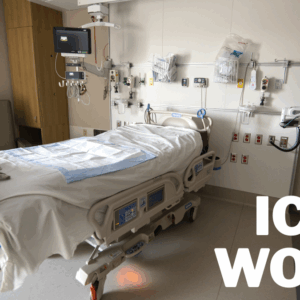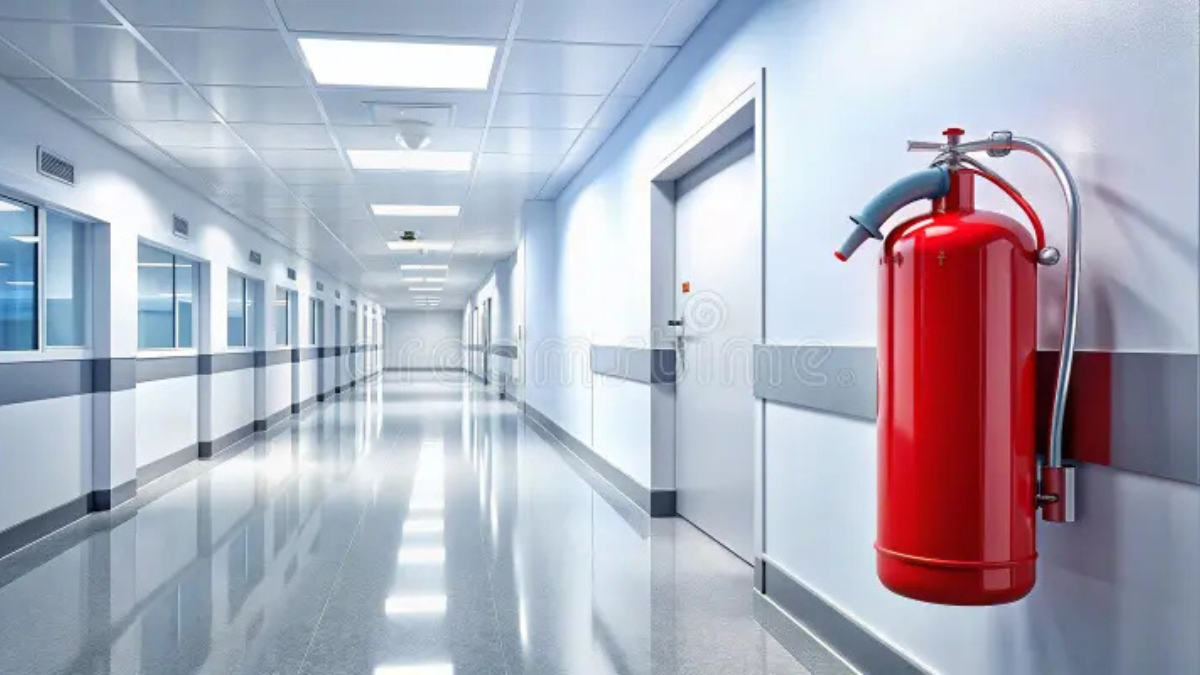In today’s fast-paced world, where health crises can strike at any moment, the importance of round-the-clock emergency hospital services cannot be overstated. Whether it’s a sudden heart attack in the middle of the night or a severe accident during rush hour, timely medical intervention often makes the difference between life and death. The demand for efficient and uninterrupted emergency care is at an all-time high due to increasing urbanization, lifestyle-related illnesses, and unexpected emergencies.
This article delves deep into why 24/7 emergency hospital services are more crucial than ever, exploring their vital role in saving lives, stabilizing patients, and supporting a resilient healthcare infrastructure.
Key Takeaways
- 24/7 emergency services are lifesaving, especially during the “golden hour” of critical medical conditions.
- Urbanization, lifestyle diseases, and natural disasters have amplified the need for constant emergency readiness.
- Technological integration such as AI, EMRs, and telemedicine are enhancing emergency care delivery.
- Challenges like burnout and funding require innovative, sustainable solutions for long-term service viability.
- Access to emergency care builds public trust and is fundamental to a strong, resilient healthcare system.
The Rising Need for Emergency Services in the Modern Er
Increased Incidence of Lifestyle Diseases
Chronic illnesses like diabetes, hypertension, and cardiovascular diseases have become common due to sedentary lifestyles and poor diet. These conditions can lead to acute emergencies requiring immediate attention, which only 24/7 services can provide.
Urbanization and Accidents
As urban areas become more densely populated and traffic increases, so do accidents. Emergency departments must be operational at all hours to cater to victims of road mishaps, workplace injuries, and domestic accidents.
Natural Disasters and Pandemics
Events like earthquakes, floods, and disease outbreaks occur without warning. Hospitals equipped with round-the-clock emergency services act as crucial centers for disaster response and management.
What Exactly Constitutes 24/7 Emergency Hospital Services?
Always Open, Always Ready
A hospital offering 24/7 emergency care is equipped to treat patients at any time of the day or night. These facilities have specialized staff and medical infrastructure ready for immediate intervention.
Advanced Life Support (ALS)
Emergency services are backed by Advanced Life Support systems, which include trained personnel, emergency transport, and on-the-spot life-saving equipment.
Integration with Other Departments
These services are not standalone. They coordinate closely with departments such as surgery, cardiology, radiology, and ICU to ensure that patients receive swift, comprehensive care.
Critical Components of Effective 24/7 Emergency Services
Skilled Medical Personnel
Emergency care demands physicians, nurses, and paramedics trained to handle high-pressure situations. Their quick decision-making abilities and clinical skills are pivotal to patient survival.
State-of-the-Art Technology
From portable ventilators to CT scanners and defibrillators, modern emergency units are equipped with cutting-edge technology to quickly diagnose and stabilize patients.
Triage Systems
Emergency rooms (ERs) operate with a triage system to prioritize patients based on the severity of their conditions. This ensures that critical patients receive immediate care.
Ambulance Services
24/7 ambulance support is an extension of emergency services, capable of initiating treatment during transport and reducing the time to hospital admission.
How 24/7 Emergency Care Saves Lives
Time is of the Essence
In medical emergencies, the “golden hour” — the first hour after a traumatic injury — is vital. Quick access to emergency care can significantly increase survival rates.
Rapid Diagnosis and Intervention
Round-the-clock services mean diagnostic tests and treatments can be performed without delay, reducing complications and improving outcomes.
Reduced Burden on Regular Services
24/7 emergency care prevents hospitals from being overwhelmed during regular working hours by distributing patient intake across the entire day and night.
Specialties That Rely Heavily on Emergency Services
Cardiology and Stroke Units
Heart attacks and strokes require immediate intervention. Delay in treatment can lead to irreversible damage or death. Emergency departments are trained to initiate thrombolysis, defibrillation, and surgical intervention quickly.
Trauma and Orthopedics
High-impact injuries from accidents need prompt assessment and stabilization. Emergency teams work closely with orthopedic surgeons to ensure timely fracture management and bleeding control.
Pediatrics and Neonatal Units
Children and newborns may face life-threatening complications without warning. Pediatric emergency services play a crucial role in ensuring their safety and recovery.
The Psychological Reassurance of 24/7 Availability
Public Confidence in Healthcare
Knowing that help is always available, no matter the hour, instills confidence in the healthcare system and encourages people to seek care when needed.
Emotional Support for Families
Families facing medical crises feel less helpless knowing that professional help is accessible at any time. It also improves mental health outcomes for caregivers and loved ones.
Challenges Faced by 24/7 Emergency Hospital Services
Staffing and Burnout
Maintaining a full staff around the clock leads to fatigue and burnout, affecting the quality of care. Continuous training and adequate shift rotations are essential.
Financial Sustainability
Operating emergency departments 24/7 involves high costs — infrastructure, staffing, equipment, and maintenance. Hospitals must balance cost-efficiency with service delivery.
Overcrowding
ERs often face overcrowding due to non-emergency visits, which hampers the care of genuinely critical patients. Public education and triage systems are key to resolving this issue.
Role of Technology in Strengthening Emergency Services
Telemedicine and Virtual Triage
Video consultations and AI-powered triage tools can assess patients remotely and guide them to the appropriate level of care.
Electronic Medical Records (EMR)
Instant access to a patient’s medical history via EMRs can dramatically improve treatment decisions during emergencies.
AI and Predictive Analytics
Artificial Intelligence is being used to predict patient deterioration, allocate resources more effectively, and improve emergency response times.
Emergency Services in Rural and Remote Areas
Bridging the Urban-Rural Gap
24/7 emergency services are particularly crucial in rural areas, where healthcare access is limited. Mobile medical units and tele-emergency platforms help bridge the gap.
Helicopter and Air Ambulance Services
In remote regions, air ambulances play a critical role in transporting patients to advanced care centers quickly.
The Future of 24/7 Emergency Hospital Services
Smart Hospitals
Hospitals of the future will leverage robotics, smart sensors, and real-time data to enhance emergency care delivery.
Personalized Emergency Medicine
With advancements in genomics and AI, emergency medicine will increasingly offer personalized treatment even in urgent situations.
Sustainable Emergency Models
Efforts are underway to create financially and ecologically sustainable models of emergency care that don’t compromise on quality.
Conclusion
In an age marked by unpredictability — whether from rising health complications, urban accidents, or global pandemics — the need for accessible, high-quality emergency medical services around the clock is more vital than ever. These services not only save lives but also act as a pillar of trust and stability within the healthcare system.
From trauma care and cardiac emergencies to neonatal support and technological innovations, 24/7 emergency hospital services ensure no one is left without care when it matters most. As healthcare continues to evolve, so must our commitment to maintaining robust, responsive, and resilient emergency services.
FAQs
What does 24/7 emergency hospital service mean?
It means the hospital’s emergency department is operational all day, every day — including weekends and holidays — with staff and resources available at all times.
Why is 24/7 emergency care important?
It allows immediate treatment of life-threatening conditions, increasing survival chances and reducing long-term health complications.
Who benefits the most from round-the-clock emergency services?
Patients suffering from strokes, heart attacks, severe injuries, or unexpected medical conditions benefit the most from timely emergency care.
What kind of staff works in an emergency department?
An emergency department is staffed by emergency physicians, nurses, paramedics, radiologists, and support personnel trained to handle urgent and critical cases.
Are all hospitals equipped with 24/7 emergency services?
Not all hospitals offer 24/7 emergency care. Some smaller or specialized clinics may have limited hours or only basic emergency support.
How can overcrowding in emergency rooms be reduced?
Improving triage systems, public education about when to use emergency care, and integrating telemedicine solutions can help reduce unnecessary ER visits.
Is ambulance service part of emergency hospital care?
Yes, ambulance services are an essential component of emergency care, providing immediate medical support and quick transport to the hospital.






